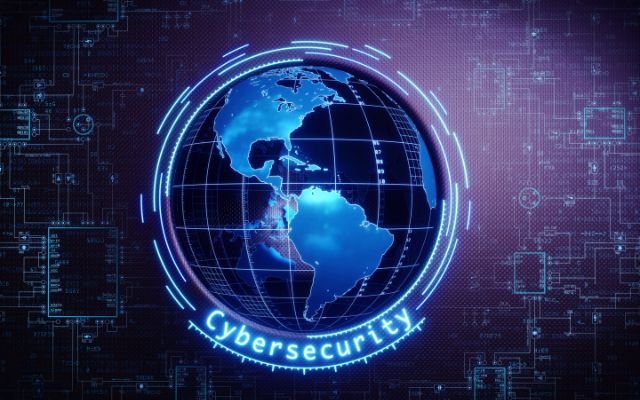How to Improve Your Cybersecurity: Best Practices and Tips

Take control of your digital safety and improve your cybersecurity by staying informed, using strong passwords, and implementing robust security measures.
With the increasing use of technology in our daily lives, cybersecurity has become more important than ever. Cybersecurity involves protecting your devices, data, and network from unauthorized access, theft, or damage. In this article, we will discuss some best practices and tips to improve your cybersecurity.
How to Improve Your Cybersecurity
Use Strong Passwords: One of the most basic ways to improve cybersecurity is by using strong passwords. Avoid using the same password for multiple accounts, and choose a combination of uppercase and lowercase letters, numbers, and special characters. Also, consider using a password manager to help you generate and store secure passwords.
Keep Software Up to Date: Ensure that all the software and applications you use are up to date with the latest security patches and updates. Outdated software is more vulnerable to cyber threats and can compromise your security.
Use Two-Factor Authentication: Two-factor authentication adds an extra layer of security to your accounts. It involves providing an additional form of identification, such as a fingerprint or one-time passcode, to verify your identity. This reduces the risk of unauthorized access to your accounts.
Be Careful When Clicking Links: Be cautious when clicking on links in emails, social media, or messages from unknown sources. These links could be phishing attempts or lead to malware or viruses. Always verify the source before clicking on any link.
Secure Your Wi-Fi Network: Secure your Wi-Fi network by using strong passwords, changing default usernames and passwords, and disabling remote management. Also, consider using WPA2 or WPA3 encryption, which is more secure than older protocols.
Backup Your Data: Regularly backup your data, such as documents, photos, and videos, to an external hard drive or a cloud-based storage service. This can protect your data from being lost or stolen in the event of a cyber attack or device failure.
Educate Yourself and Others: Stay informed about the latest cybersecurity threats and how to prevent them. Share this knowledge with your family, friends, and colleagues, and encourage them to adopt best practices for cybersecurity. Additionally, leveraging advanced solutions like Cyware Cyber Threat Intelligence can provide you with real-time insights and alerts about emerging cyber threats, keeping you one step ahead in your cybersecurity efforts.
FAQ
Q: Why is cybersecurity important?
A: Cybersecurity is crucial to protect your sensitive data, personal information, and digital assets from unauthorized access, theft, or misuse. It helps safeguard against cyber threats, such as data breaches, identity theft, malware, phishing attacks, and financial fraud.
Q: How can I improve my cybersecurity?
A: Here are some best practices and tips to enhance your cybersecurity:
- Use strong and unique passwords for all your accounts.
- Enable two-factor authentication (2FA) for added security.
- Regularly update your operating system, software, and apps.
- Install reputable antivirus and anti-malware software.
- Be cautious of phishing emails and suspicious links.
- Only download apps and software from trusted sources.
- Back up your important data regularly.
- Avoid using public Wi-Fi for sensitive transactions.
- Educate yourself about common cybersecurity threats and stay informed about the latest security practices.
- Use a virtual private network (VPN) when accessing the internet on public networks.
Q: What are the risks of weak passwords?
A: Weak passwords make it easier for cybercriminals to gain unauthorized access to your accounts. They can use techniques like brute-force attacks or password cracking to decipher weak passwords and compromise your personal information, including financial details, social media accounts, and online services.
Q: What is two-factor authentication (2FA)?
A: Two-factor authentication adds an extra layer of security to your accounts. It requires you to provide a second form of verification, such as a unique code sent to your mobile device, in addition to your password. This ensures that even if your password is compromised, the account remains secure.
Q: How often should I update my software and apps?
A: It is recommended to update your software and apps as soon as updates become available. Updates often include important security patches that fix vulnerabilities and protect against newly discovered threats.
Q: What should I do if I receive a phishing email?
A: If you receive a suspicious email, do not click on any links or provide any personal information. Instead, delete the email or mark it as spam. Be cautious of emails asking for sensitive information, appearing urgent, or coming from unknown senders.
Q: How can I create strong passwords?
A: To create strong passwords, use a combination of uppercase and lowercase letters, numbers, and special characters. Avoid using common passwords or personal information that can be easily guessed. Consider using password managers to securely store and generate complex passwords for each of your accounts.
Q: Are free antivirus software effective?
A: Free antivirus software can provide a basic level of protection, but it may have limitations in terms of features and advanced threat detection. It is advisable to invest in reputable paid antivirus software for comprehensive protection against evolving cyber threats.
Q: Can cybersecurity threats affect mobile devices?
A: Yes, mobile devices are susceptible to cybersecurity threats, including malware, phishing, and unauthorized access. It is essential to apply the same security measures to your mobile devices, such as using strong passwords, keeping software up to date, and being cautious of downloading apps from untrusted sources.
Q: How can I stay informed about cybersecurity practices?
A: Stay updated by following reputable cybersecurity websites, subscribing to security newsletters, and staying informed about the latest news and best practices. Additionally, consider attending cybersecurity webinars or workshops to enhance your knowledge.
Q: What should I do if I suspect my accounts or devices have been compromised?
A: If you suspect a security breach, immediately change your passwords, enable 2FA, run antivirus scans, and contact the respective service provider for further guidance. It is important to act swiftly to minimize potential damage and protect your accounts and data.
Remember, improving your cybersecurity is an ongoing effort. Stay vigilant, adopt good security habits, and prioritize the protection of your digital presence.
- How to Protect Your Apple ID With Security Keys
- How to increase your iPhone Privacy and security
- What is Cyber Threat and Security
- Beware: 11 Malicious Phone Apps Found in Google Play Store Demand Immediate Deletion
Conclusion
Improving your cybersecurity requires diligence and vigilance. Use strong passwords, keep software up to date, use two-factor authentication, be careful when clicking links, secure your Wi-Fi network, backup your data, and educate yourself and others about cybersecurity best practices. By following these tips and best practices, you can help protect yourself and your information from cyber threats.






